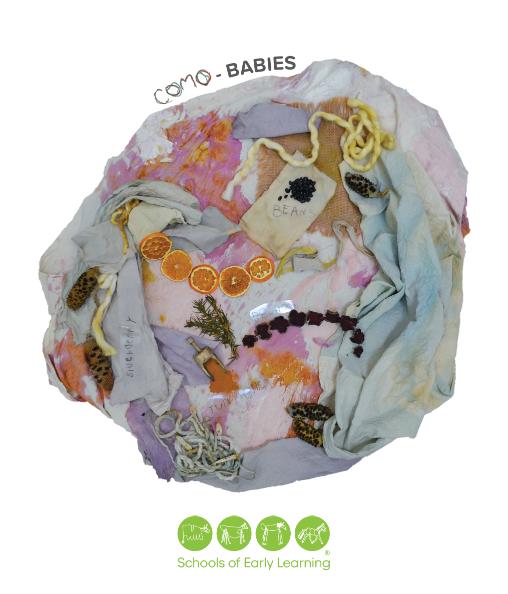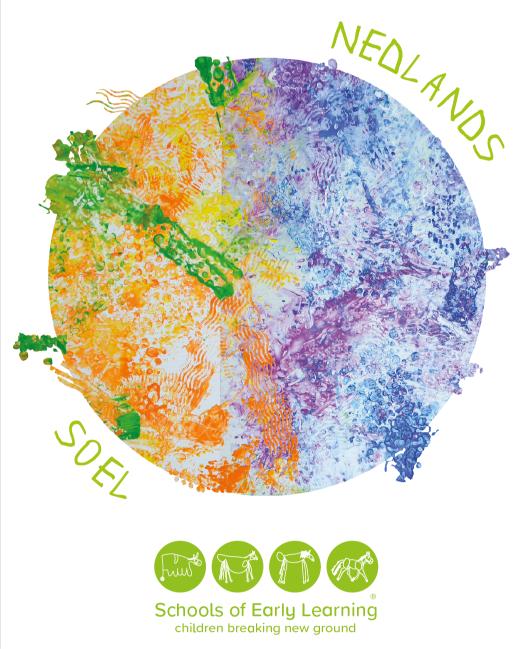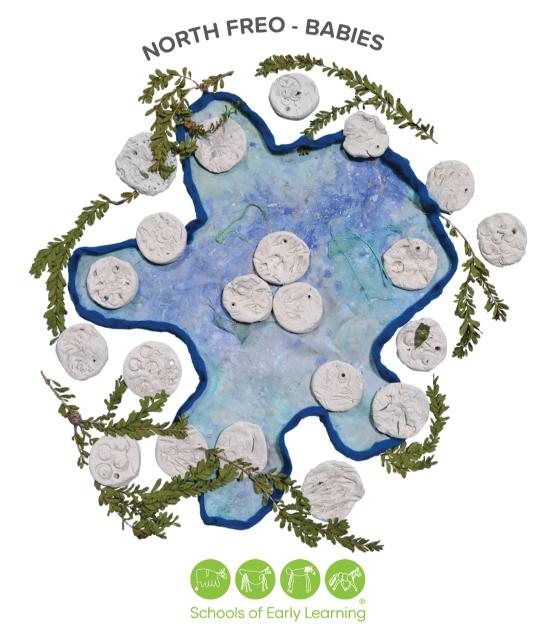“We do not believe in ourselves until someone reveals that deep inside us something is valuable, worth listening to, worthy of our trust, sacred to our touch. Once we believe in ourselves we can risk curiosity, wonder, spontaneous delight or any experience that reveals the human spirit.”
E.E. Cummings
By Pia Coates and Liz Chavez
The Schools of Early Learning (SOEL) have a rich history in inquiry-based learning; deciding many years ago to bring the work of educators in Reggio Emilia to Western Australia and the children in their care. Each year teachers and educators from our six SOEL centres engage children in research to dig deep into an idea or concept. This yearly idea or concept is based on the findings from the previous year’s research and is encompassed in a BIG idea. This BIG idea frames the children and educators research.
For 2023 the Babies’ BIG idea to research was: Being Seen, Heard and Acknowledged and the Toddlers’ BIG Idea to research was: Shared delight in play.
To support the educator’s understanding and engagement in these two BIG Ideas to research. The Pedagogy Team facilitated network meetings quarterly and delivered training in the Circle of Security Approach to foster educators’ confidence with the journey of self-discovery around babies and toddlers’ as capable and competent human beings.
A range of methods were used to engage children, families and educators in these research BIG Idea. Some examples of this were: observing play and children’s vocalisations and engagements through the lens of play and communication; using intentional provocations to promote play and discussions; and looking at daily routines through the lens of rituals.
The educators met for their final meeting in October 20223, to share their findings, challenges and identify patterns and recurrent ideas across the six SOEL Babies and Toddler programmes.
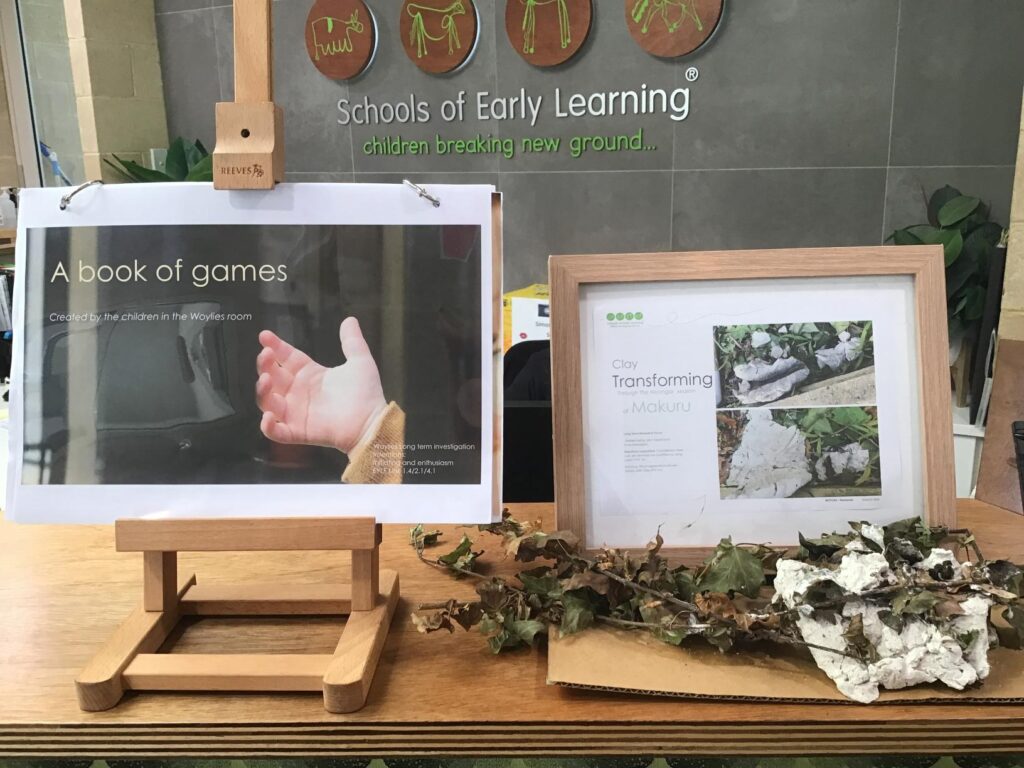

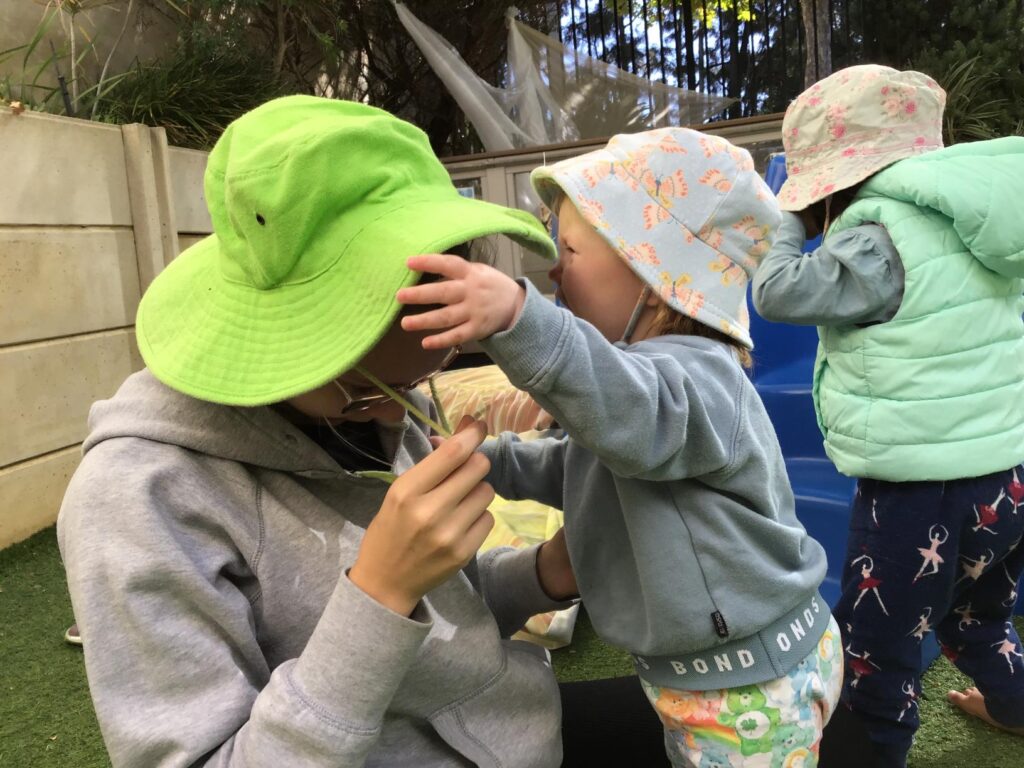

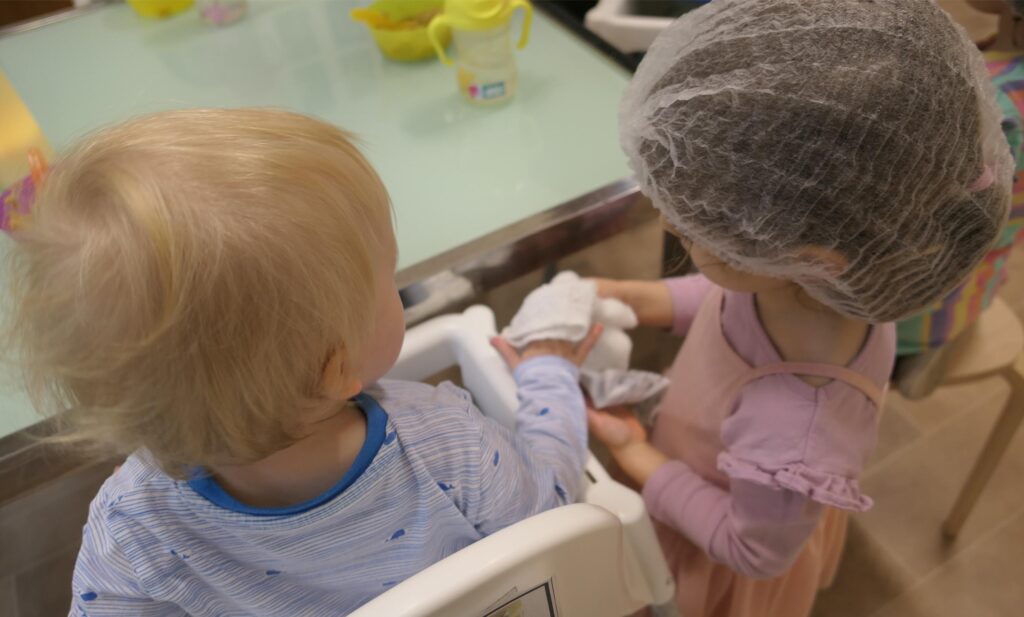

The findings from the Babies 2023 research into Being Seen, Heard and Acknowledged are:
The importance of slowing down to be present to babies’ everyday moments.
- Slowing down and being present has allowed the educators to see things from the child’s point of view. When you slow down as an educator you can more readily see each child’s needs.
- Slowing down has impacted educators’ perception of their environments for the babies. They have enhanced their environment to further the experience for the babies. The Pedagogy and Training Team identified that enhancing environments with light, colour, music, textures and so on supported the educators to observe the babies’ engagement in these spaces with care and intention.
- Educators were more able to see the engagement of the babies in the routines and experiences when they slowed down. Educator noticed that babies’ emerging interests; realising that these were not always the educators’ intentions.
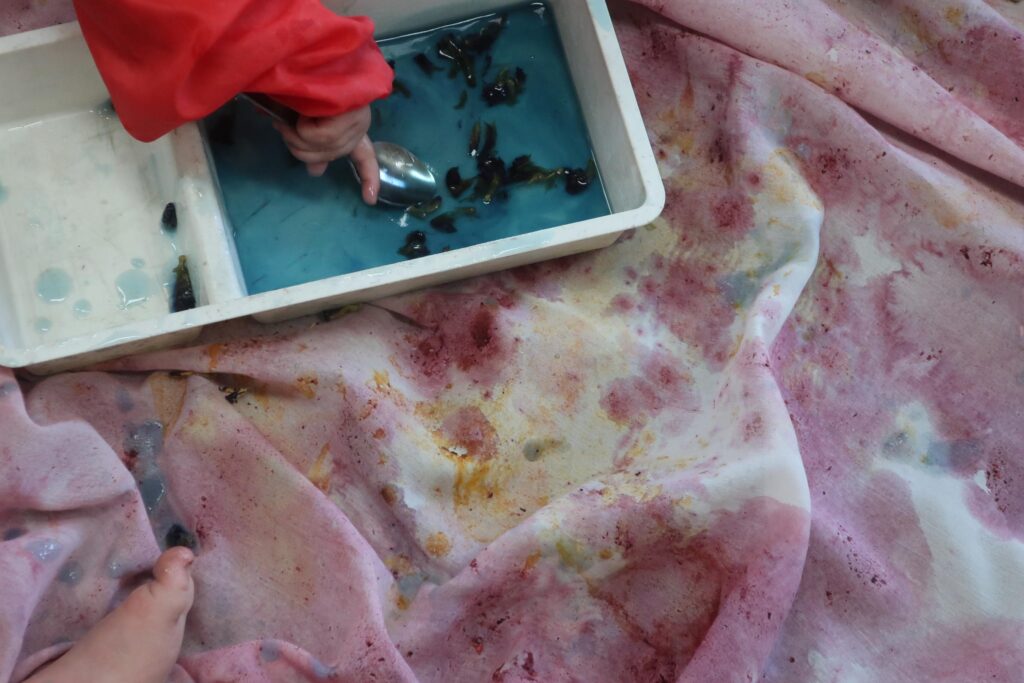

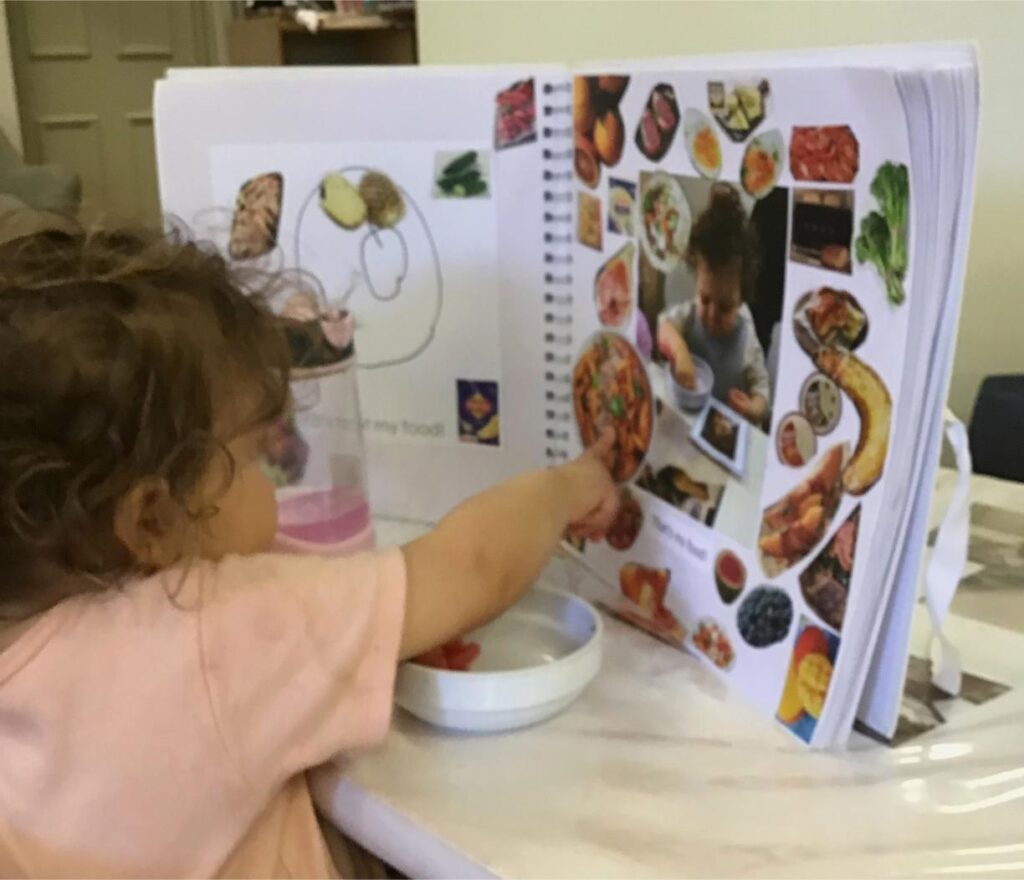

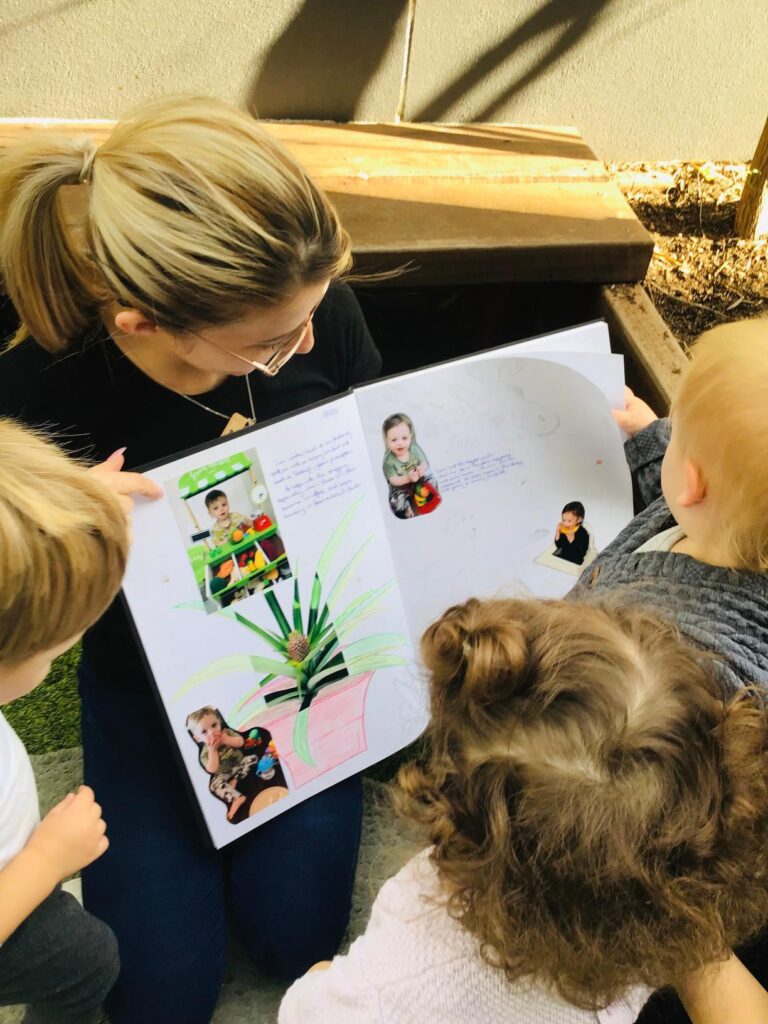

“Knowing babies personality matters.” – Chandi, Poole Educator, North Fremantle
- Routine practice has changed because of slowing down and observing the everyday. For example, mealtimes and nappy changes.
- By slowing down, the educators noticed the BIG Idea of Being Seen, Heard and Acknowledged everywhere in the programme and the day.
The use of Auslan by educators and babies fosters babies’ communication skills.
Intentional spaces and ritual promote families’ engagement.
At North Perth babies’ room, families joined the babies’ morning tea ritual. They stated they enjoyed the environment created around mealtimes so much that they wanted to stay themselves and be a part of the ritual and space.
Clear tangible exchanges with families fostered engagement and collaboration.
The introduction and engagement with food journals, mealtime books and the book Handa’s Surprise by Eileen Browne fostered conversations with families, sharing of stories, and building relationships between educators and families for the wellbeing of the babies.
